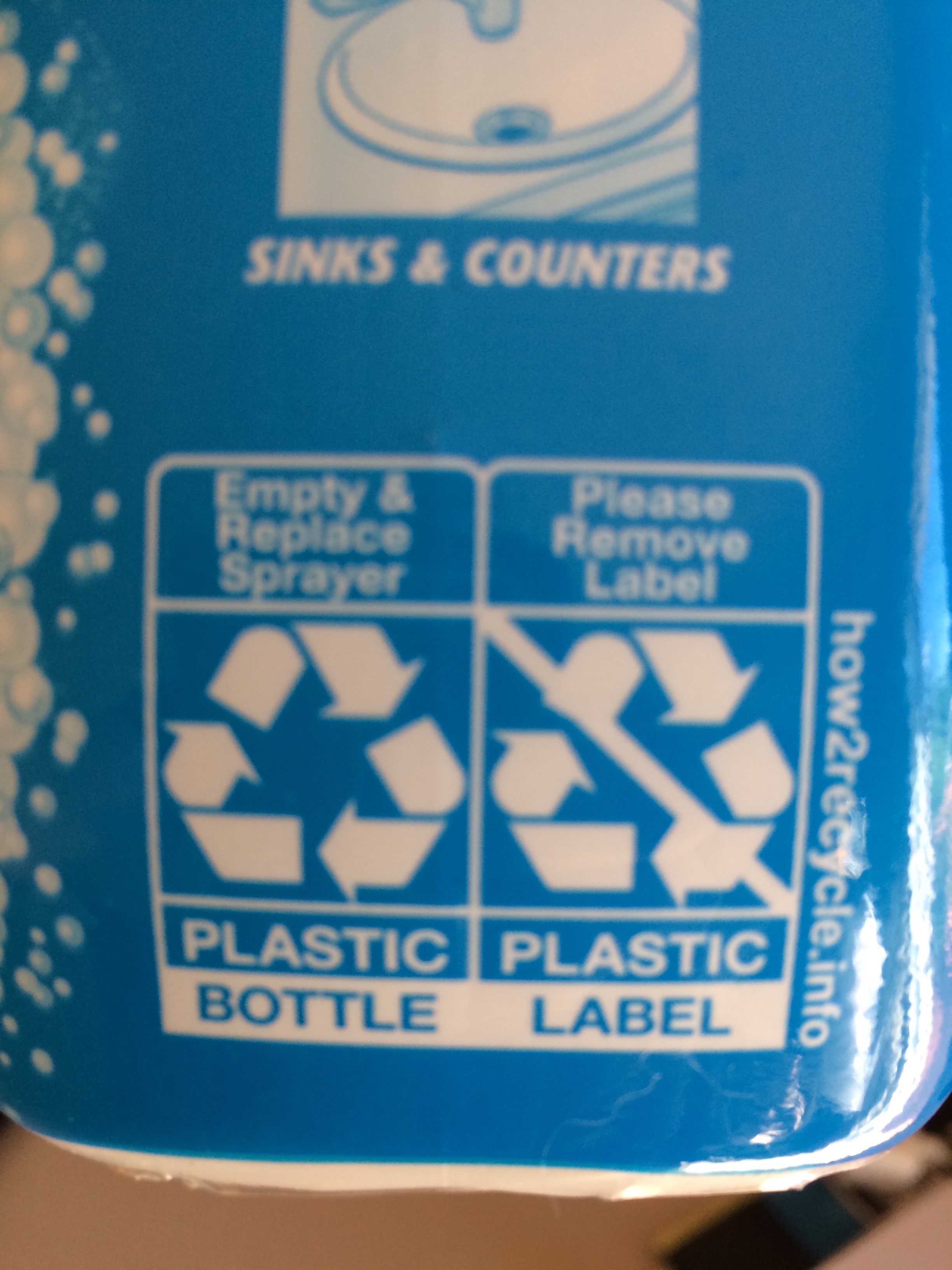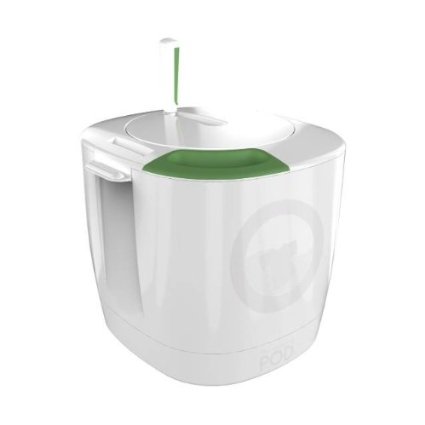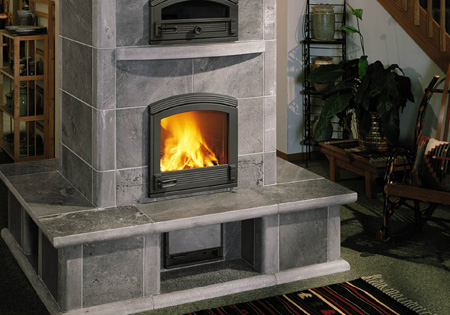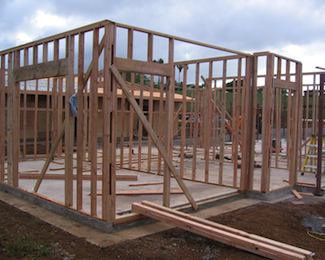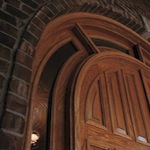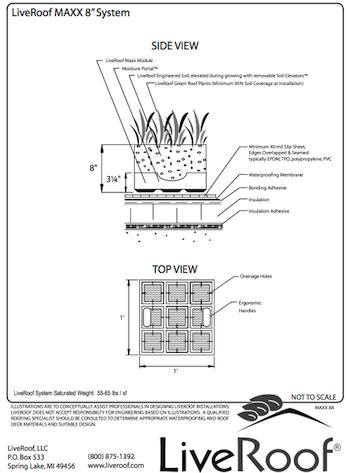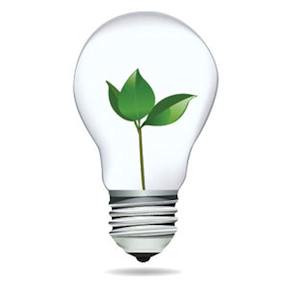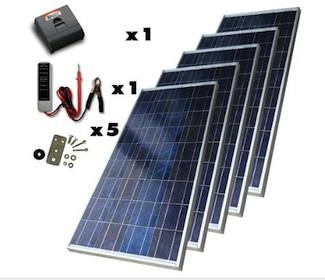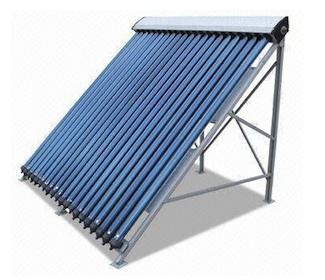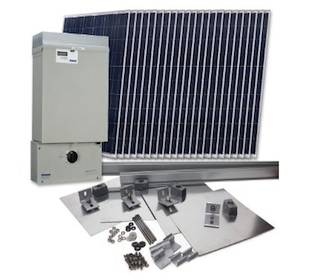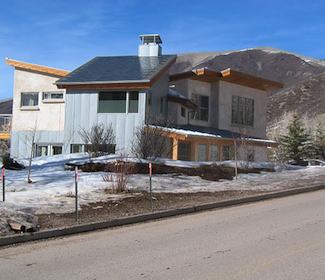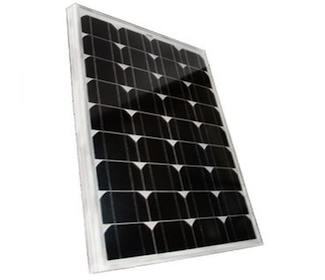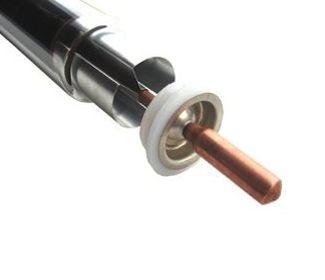Residential Solar Power
The very definition of a sustainable, 'green' home is one that minimizes the use of energy. The traditional sources of energy we have all been relying on for our energy, specifically coal and oil, are nonrenewable and are major sources of pollution and climate changing gases. And they're not getting any cheaper. An average home will cost upwards of $100,000 to power with electricity over the next 25 years relying strictly on power from utilities.
A well-designed green home will minimize the energy usage required to light, heat and cool it through thoughtful design and efficient, high-quality energy-saving materials. The next step in green home design is the inclusion of renewable energy sources to supplement or even replace the nonrenewable energy used to power the home.
Residential solar power is the most popular form of renewable energy for the home. And luckily, it's never been easier or more affordable to start using the power of the sun to power your home.
Residential Solar Power: Consider the Switch
While energy from polluting nonrenewable sources (and even renewable yet controversial sources such as nuclear and large hydroelectric) continue to rise, residential solar power costs are steadily declining.
For many years, residential solar power has been the domain of hard-core environmentalists and 'off-the-gridders'. Early residential solar power systems were expensive, complicated, and relatively inefficient.
That is all changing, and solar power is becoming a real possibility for homeowners in any area of the country.
Advantages of Residential Solar Power
The environmental advantages of installing residential solar power in your home are obvious; solar power produces no waste, no pollution, no greenhouse gas emissions.
Installed solar panels last for decades, creating clean electricity for your home. They are a superb way to ensure long-term lower, fixed electricity rates.
There are new ways of installing residential solar power in your home. Solar systems can be installed for as little as no money down, and will often qualify for state and federal tax credits.
Companies are now offering leasing options for homeowners, where the solar power system and panels are leased, not owned. The homeowner buys only the energy created by the solar panels.
Solar power systems known as 'intertie' systems are available for those looking to get into solar power without massive investments. These systems don't replace the electricity from utilities, but rather supplements it. When the sun is out, the solar panels supply a percentage of the home's electricity.
The unique aspect of these systems is that when the solar panels are creating more power than the home is using, that power is fed back into the grid, and the home's power meter actually spins backwards! The electric company will actually pay you for any excess energy you give back to them (although most utilities cap the amount of energy they'll pay you for.)
New types of solar panels are emerging and are continually becoming more efficient at turning sunlight into energy. The traditional solar panels most people are familiar with are being joined by new types of collectors, such as solar shingles that are more inconspicuous and blend into your home's design.
Additional incentives for the purchase of solar power systems are the tax rebates that are available from federal, state and locat agencies. For more on these rebates, be sure to visit our section on Energy Tax Credits.
Photovoltaic Shingles:
The introduction of new photovoltaic shingles for creating energy from the sun is rapidly changing the residential solar power industry.
Photovoltaic shingles are designed to look like traditional asphalt shingles. They will protect your roof from the elements like regular shingles, while at the same time creating electricity for your home from the sun's energy.
For more information about utilizing this product, be sure to visit our article on Photovoltaic Shingles for the latest infomation and advice.
Solar Energy Facts:
The energy from the sun is responsible for all life on Earth, and is the origin of most of the forms of energy we use to power our modern society; coal, oil, biomass, wind, etc. None would be possible without the sun.
Now, continually improving technology is allowing us to harness the sun's power directly, taking advantage of the massive amount of energy the sun bathes the Earth in every single day.
For interesting facts on solar energy, be sure to visit our page Solar Energy Facts for the latest infomation and advice.
Residential Solar Panels:
Photovoltaic, or residential solar panels are the most important and visible part of a solar power system.
By turning sunlight into an electrical current, they can reduce or even eliminate your home's need for electricity from polluting, nonrenewable fossil fuels.
For more information about these panels to gather the ultimate renewable energy source visit Residential Solar Panels and get the latest information.
Photovoltaic Solar Panels - How They Work:
Solar panels take the energy of the sun and convert it into usable electricity for the home my simply situating these panels on your roof or in an array somewhere in your yard. This article will explain how that amazing process works.
So if you want to know more about the physics of solar panels and what makes them tick, you have come to the right place.
For more information about how solar panels work to gather the ultimate renewable energy source visit Photovoltaic Solar Panels - How They Work and get the info.
Evacuated Tube Solar Hot Water:
Evacuated tube solar hot water collectors are an efficient, effective way to heat a home's water using the heat of the sun.
As part of a complete solar hot water heating system, they work very well in cold and cloudy conditions.
If you would like additional information on this great solar water heating system, be sure to visit Evacuated Tube Solar Hot Water Collectors and get the low-down.
Other Forms of Residential Solar Power
While most of us think of solar panels on a roof producing electricity when we think of solar power, there are other ways to use the sun's power.
- Passive Solar Design: The design of a home can itself be a source of solar power. Passive solar power doesn't require any equipment or panels. Passive solar design uses the windows, walls, floors, and orientation of the home to collect, store, and distribute energy from the sun. See our article on passive solar design for more information. To learn more about passive solar heating, be sure to visit our article: Passive Solar Design.
- Solar Water Heating: Another less expensive yet effective type of solar power is solar hot water heating. Used alone or in conjunction with a traditional gas or electric hot water heater, solar water heating is another elegant and simple way to take advantage of our nearest star's energy.
Regardless of the type of residential solar power you use, and whether you buy or lease the solar power systems, you will be showing your support for a new clean energy movement, and have the peace of mind that comes with reducing your environmental impacts in a visible and substantial way.
comments powered by Disqus
